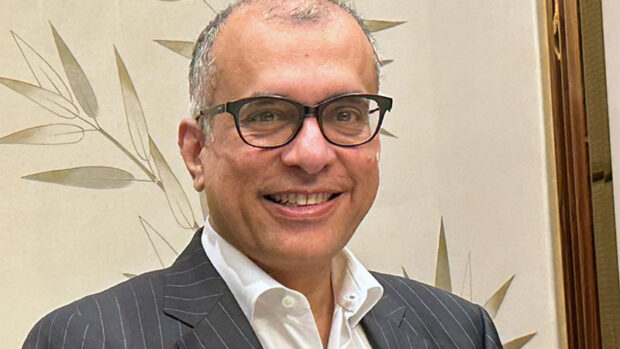MANILA, Philippines – British banking giant HSBC sees strong underlying banking fundamentals and “progressive” regulators serving as buffer for the Philippines and the rest of Southeast Asia against shock waves from a string of recent US bank failures.
“I think Asean (Association of Southeast Asian) banks and more broadly, Asian banks, are well-capitalized,” HSBC Group cochief executive Surendra Rosha said in a media roundtable on Tuesday.
At the same time, the visiting HSBC chief said the macroeconomic backdrop remained favorable for the region, with most of the economies having “come out of the pandemic and rebounded well in 2022.”
Asked whether he was worried that the current turmoil would go the way of the global financial crisis of 2007 to 2009, Rosha said while he couldn’t predict how things would unfold, “the underlying financial strength of the banks is a huge positive” in terms of generating market confidence.
Locally, HSBC Philippines CEO Sandeep Uppal added that based on data put out by the Bangko Sentral ng Pilipinas (BSP), “the banks are very well capitalized and there’s ample liquidity in the market.”
‘PH banks remain resilient despite global jitters’
Stable market
“And that’s why on various parameters, the market has been stable; the currency has been stable; and the BSP is very progressive as a regulator,” Uppal said.
In the United States, the collapse of three medium-sized banks—Silvergate Bank, Silicon Valley Bank and Signature Bank —alongside ongoing liquidity concerns over First Republic Bank have spooked investors. In Europe, banking regulators orchestrated the takeover by UBS of Credit Suisse to curb further spillover jitters.
Moving forward, HSBC is keen on growing its banking franchise in the Philippines, and not just the wholesale banking segment. Unlike other foreign banking peers that have given up their local consumer and retail banking operations, the HSBC officials said there was room to grow these businesses.
“We think that there is a continued opportunity for a bank of our footprint to have a wealth and personal banking operation in a market like the Philippines. So we absolutely intend to [keep these businesses],” Rosha said.
Expanded solutions
“Hopefully, that’s well demonstrated through our launch of HSBC Wealth and our investment going into the branches. We see a huge upside,” added Uppal.
He was referring to last year’s launch of HSBC Investment and Insurance Brokerage Philippines Inc., or HSBC Wealth, to offer expanded wealth solutions including unit investment trust funds, fixed income investments and investment-linked insurance.
One of the oldest foreign banks in the country, HSBC has been operating in the Philippines for 148 years.
HSBC is upbeat on the Asean region as a whole, noting that economic growth rates of member-countries are among the highest in the world. It is present in six out of 10 Southeast Asian markets.
“As an aggregate economy of 600 million people, the Asean bloc represents a substantial opportunity for global companies that want to do business and that want to see growth. It offers substantial opportunity to global institutions that have capital that they want to work productively,” Rosha said. INQ
